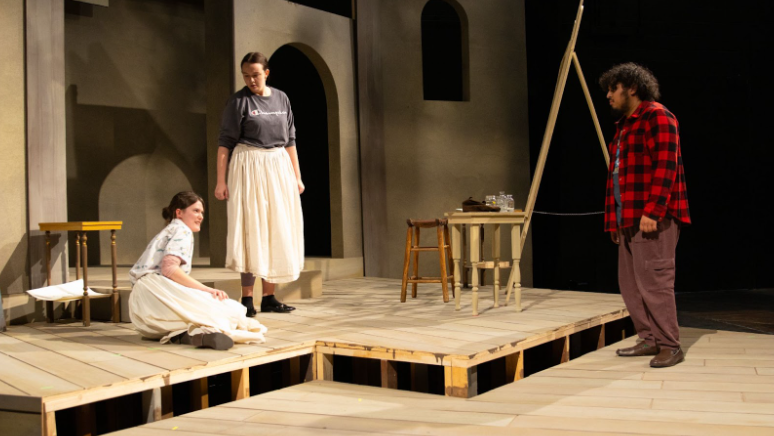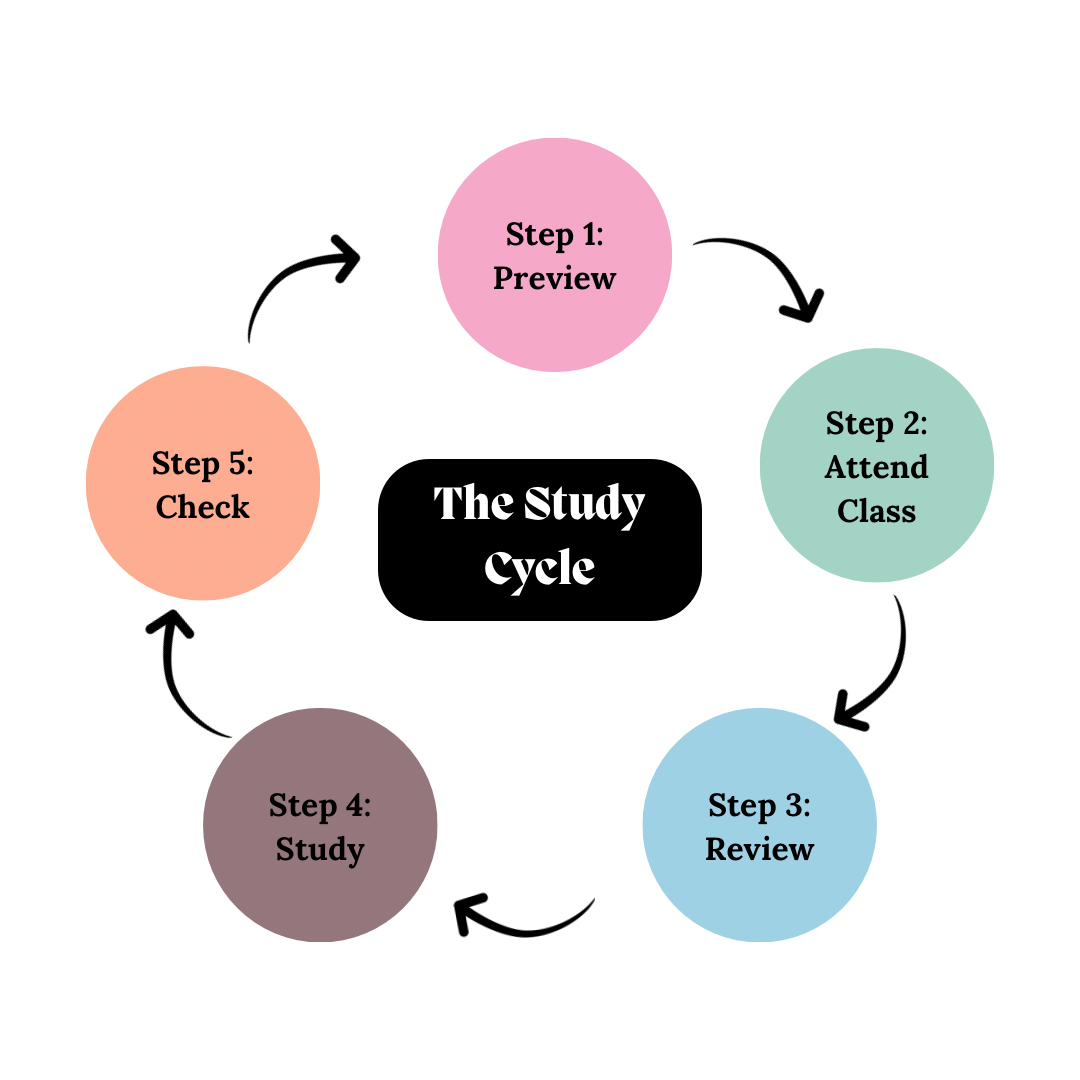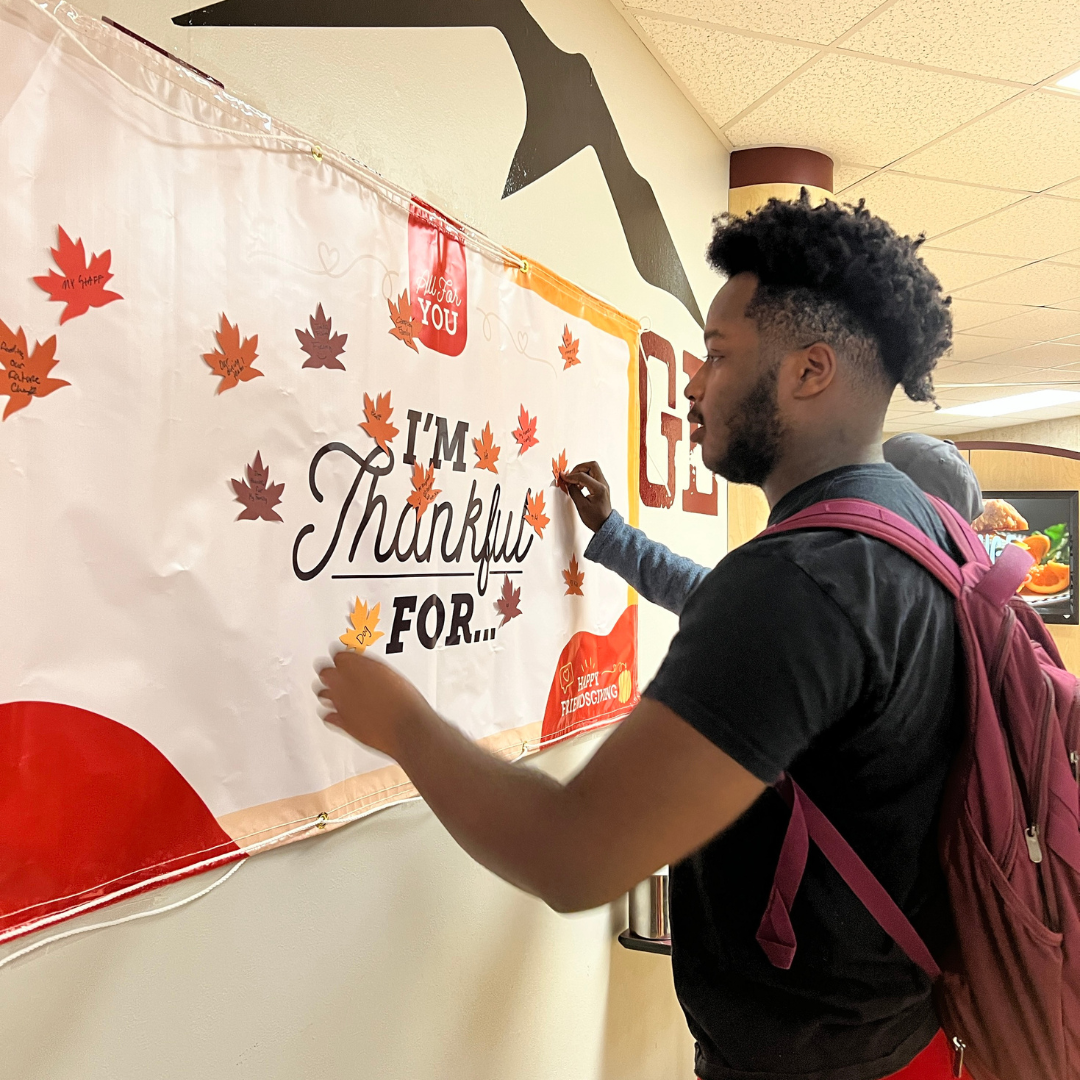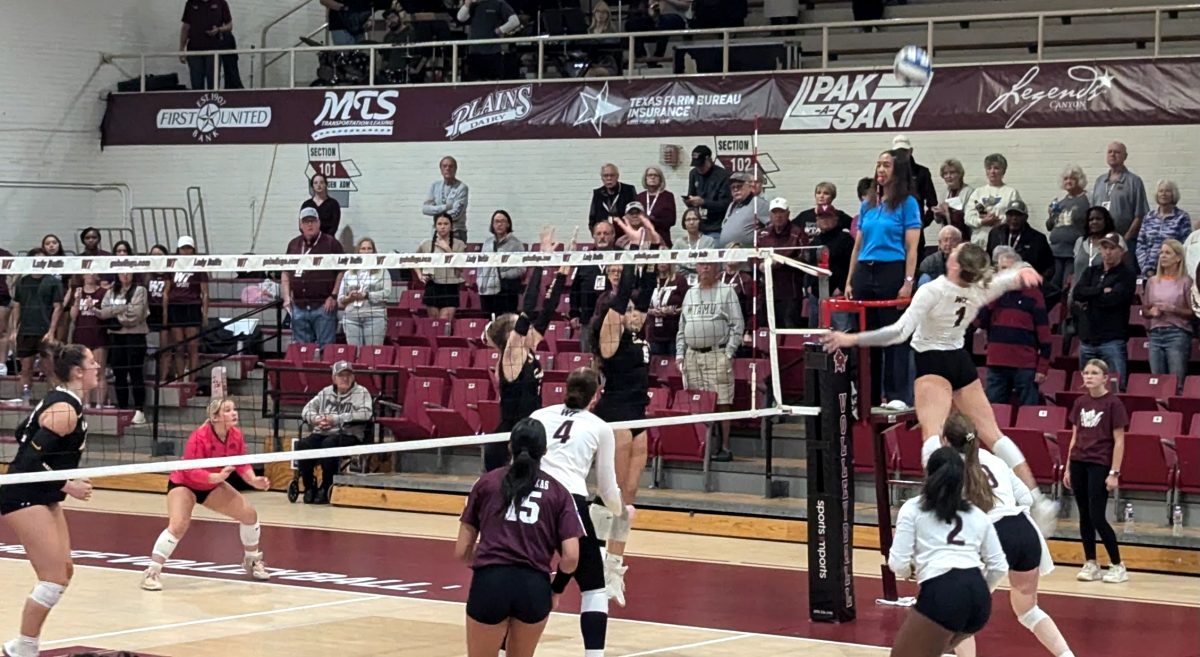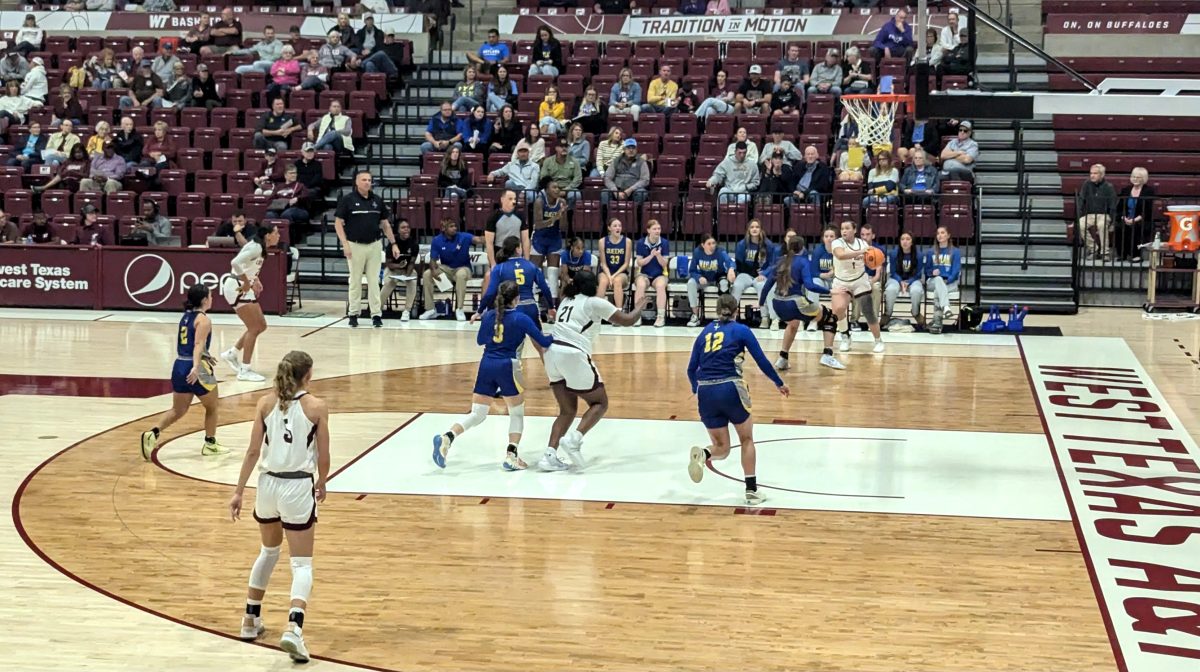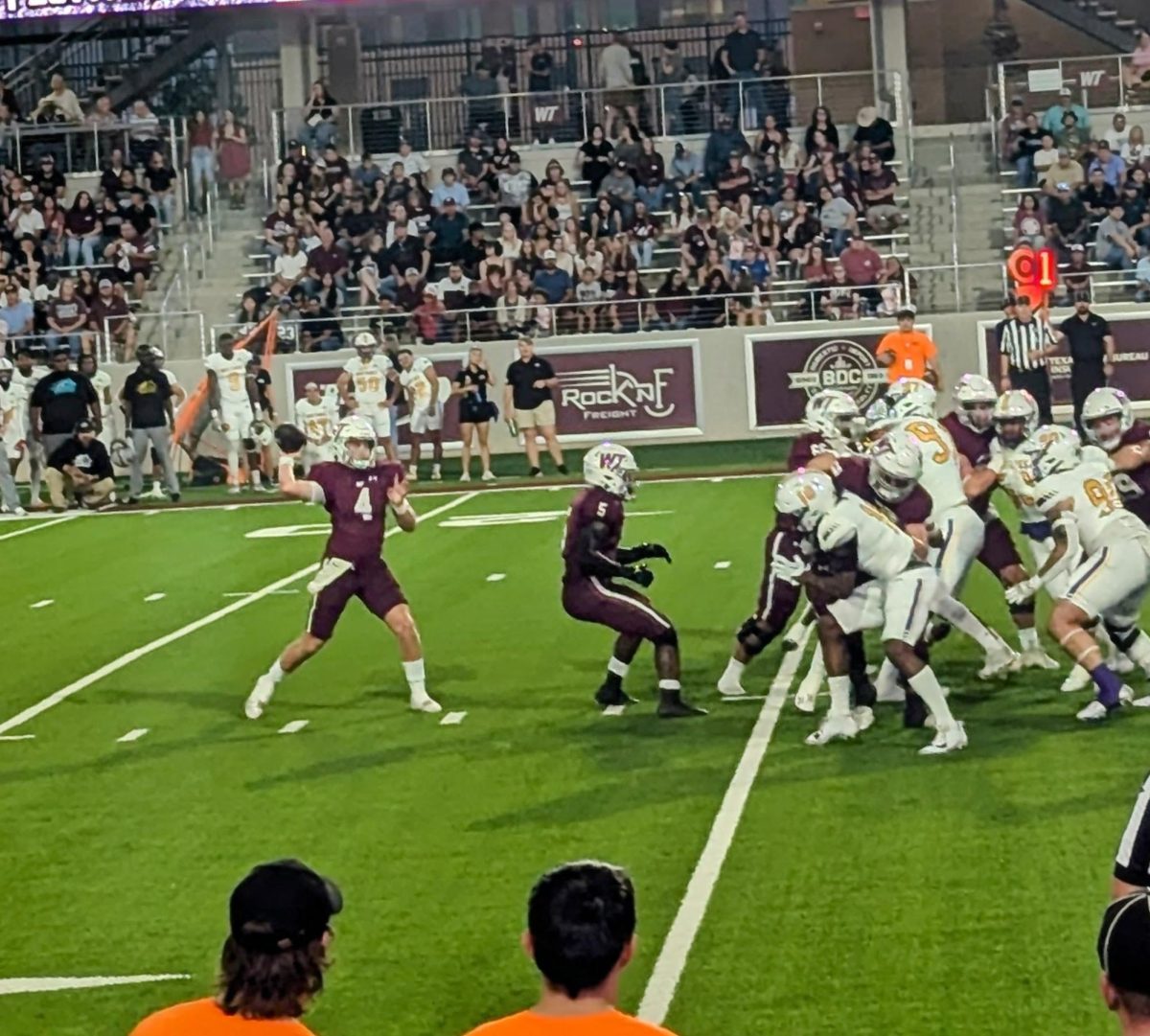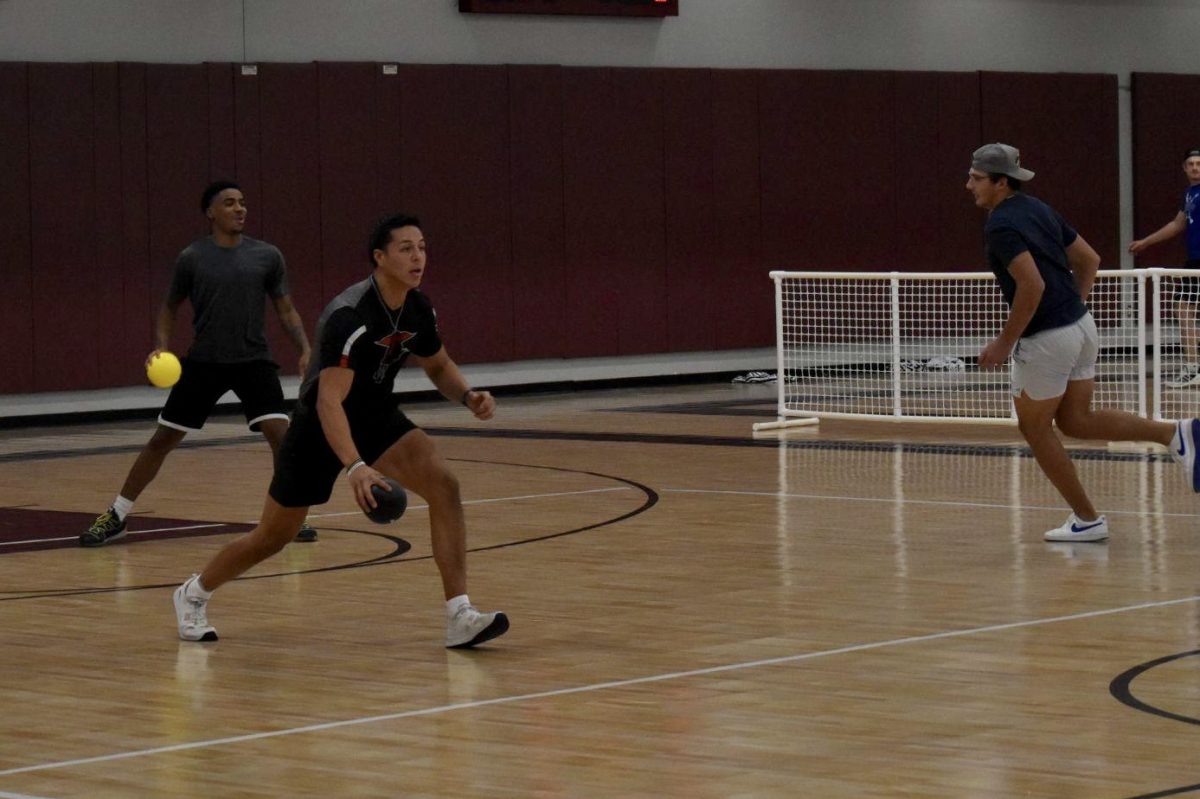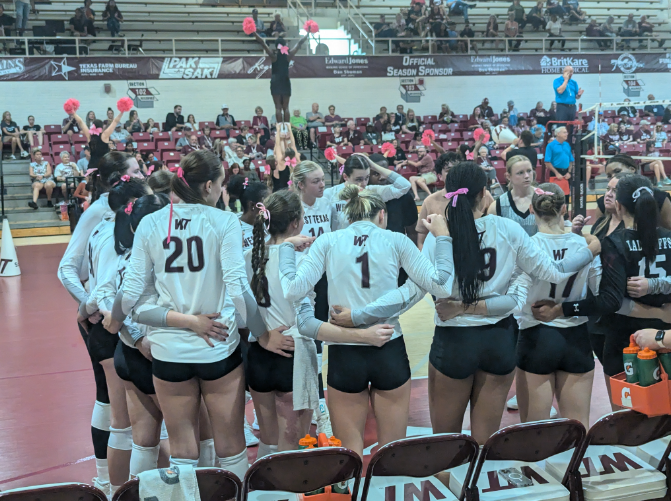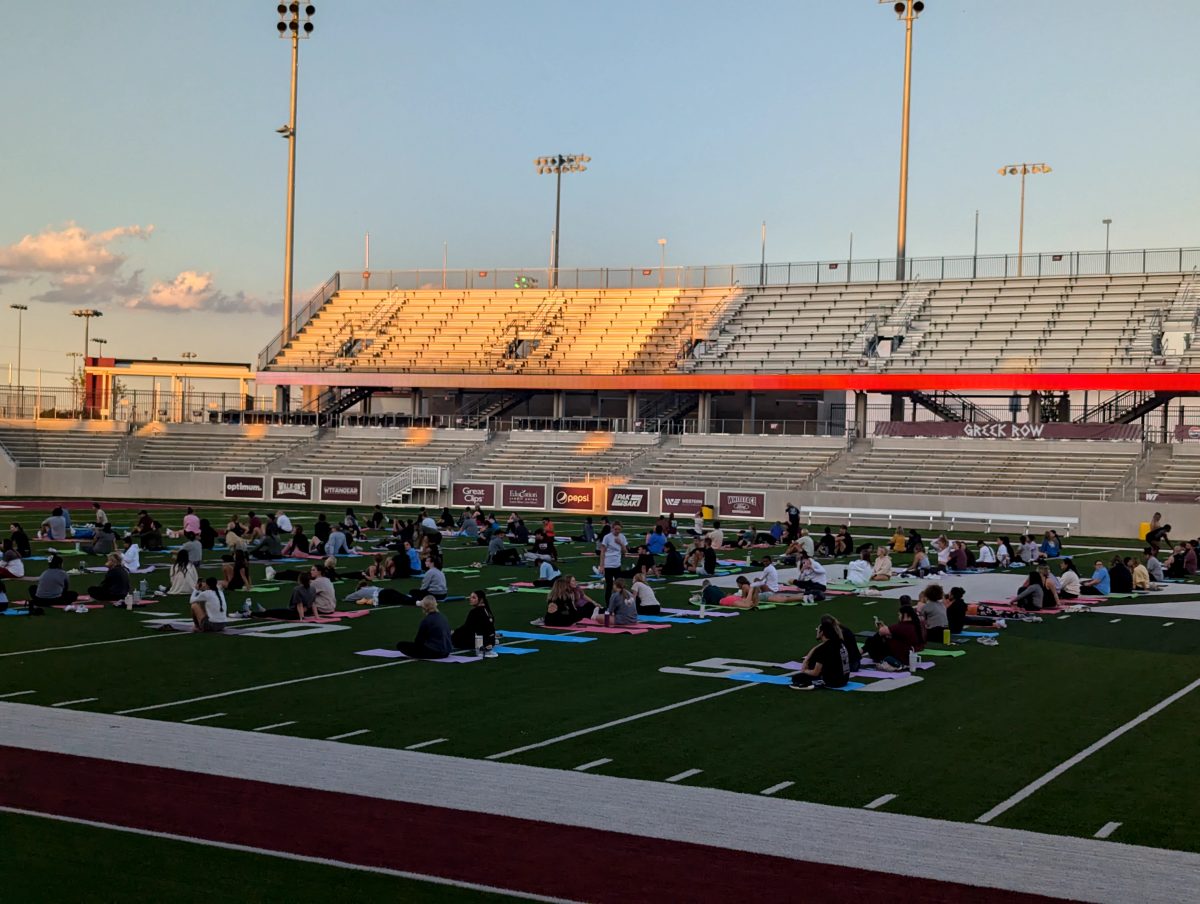This is part two of a seven part series.
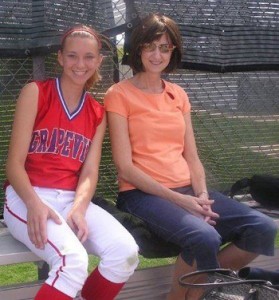
One of Alyssa Lemos’ big dreams is to go to medical school. The junior at West Texas A&M is majoring in biochemistry and biology for pre-med, or as she says, she is majoring in studying. In just having a simple conversation with Alyssa, one would realize that she a very dedicated woman, particularly when it comes to her goals. There is subtle motivation that burns in her eyes. She’s rigid about her life. She likes to plan, but she’s easy to work with and relatable to most people. Softball fills a vital role in her life, but it wasn’t the first sport she tried.
“My dad actually put me in every other sport possible before softball,” she said. “[He] put a ball in my hand and it literally was just fate for me to play. I had an arm and I fell in with the game from then on.”
In fact, according to Alyssa, nobody knows her swing better than her father.
Alyssa grew up in Grapevine, Texas, the daughter of Wayne and Roni Lemos. She’s the “mean” older sister of her brother, Austin and she played shortstop at Grapevine High School, the home of the Mustangs.
During 2005, Wayne noticed that Roni, his wife of 19 years, appeared to be “bloated.” After multiple trips to the doctors, they had determined it was Roni’s gallbladder. When Roni went in for gallbladder surgery, the doctors determined it wasn’t her gallbladder at all.
On January 17, 2007, Roni and Wayne sat Alyssa and her brother down and revealed she was diagnosed with ovarian cancer, Stage III. By the time she had gone into surgery, the cancer had spread to seven of her major organs. That was the day that Alyssa found out, just one day after her 15th birthday.
“It didn’t really hit me how serious it was,” said Alyssa. “It was one of those things like, ‘okay, she’s got cancer. The doctors are gonna treat it. It’s not going to be a big deal.’ It’s not really gonna change my life and, man, was I wrong.”
For cancer patients, there are two are three weeks that are bad and then one really good week. During Roni’s bad weeks, she wouldn’t eat, she’d constantly vomit and she would lie down as much as she could. There were times when Roni would be in so much pain that she couldn’t even walk around the mall.
The family dynamic changed from that day on. Wayne, who is a salesman and travels a majority of the year, stopped traveling altogether to take care of his wife and he was always at her side. Alyssa had to become the new mom. She had to take care of her brother: get him to school and pick up other duties around the house.
By the time Thanksgiving came around in 2007, Roni was declared to be without cancer. The doctors said her cancer would be back in two years and then they would treat it then.
Roni was rushed into the emergency room three months later. The cancer had come back, this time, it had changed forms.
“That was actually really scary because we rushed her back to the hospital because she was in so much pain,” Alyssa said. “I was really confused at first because just a few months earlier they told us that she would come back in two years and everything should be smooth sailing until that point. At that time the disease became more real with the fact that it was actually going to stay in our lives forever and that the cancer really was never going to give up.”
Roni wasn’t going to give up, either. She needed to remain strong for her children.
“She tried to stay the same as much as possible, honestly,” she said. “She treated me and my brother the exact same…she dedicated her life to us, literally. She quit her job so she could be a stay at home mom. Her personality never changed. She always told us that she loved us and always gave us hugs and said, ‘good night.’”
In May, the Lemos family got some terrible news. Roni was no longer responding to treatment. The treatments would do no good. The cancer was going to have to run its course.
This was devastating to Alyssa. Her mother was in a losing campaign against a terrible disease. The news was when a dose of reality hit her.
“That’s when everything started to get real,” she recalled. There were social workers and hospice care nurses that were constantly at the house, coaching the family about signs that would signal the end is near. “I felt so lost because I never thought her time would actually come. I knew my mom didn’t want to give up and it was hard to comprehend that the cancer was so bad that the doctors had decided it was time to throw in the towel.”
During the Fourth of July weekend in 2008, Alyssa was playing at a softball tournament in Colorado. Her coaches told her at the game that the doctors back in Texas didn’t believe Roni was going to make it through the weekend. Alyssa and a coach left Colorado at 4 a.m. and drove 13 hours back to Grapevine.
Roni’s condition continued to decline as summer continued. On September 18, 2008, just two days after her 44th birthday, Roni Lemos passed away, a victim of ovarian cancer. Alyssa Lemos, her only daughter, was just 16 years old. In Roni’s final days, she had to eat through IV because she had a blockage in her stomach and she had a bag that came out of her abdomen to catch fluids.
“Watching her go through that, I just kept telling some of my friends that, ‘I am ready for it, I can’t watch her do this anymore,’” Alyssa said. “The day that it happened, one of those friends came over and she was like, ‘you weren’t ready for it.’ That hit me so much harder than I could have ever expected it to. But I was thankful that she wasn’t suffering anymore, that she did go peacefully, she didn’t feel the pain anymore.
“[Wayne] became very angry, especially after she passed,” continued Alyssa, speaking about her father. “It was one of those things that it’s not fair that it happened to us, we’re good people, we didn’t do anything wrong. So he was really angry. He didn’t really know how to deal with it. He literally dedicated the rest of his life to her, to making her better, getting her absolutely everything that he possible could to save her. There was literally nothing else that he could have done for her. He’s always going to be hurting until the day he dies because of it, because of the experiences we had to go through.”
Alyssa missed some time from school after Roni passed away. At Grapevine, the policy was no more than a week. So, one week after her mother died, Alyssa had to dry up her tears and face the onslaught of high school.
She wasn’t ready for high school again. Many of the kids around her didn’t know what had happened and she received some grief from students, pestering her about where she had been. The teachers, for the most part, understood. She was told not to worry about the missed time. Still, it was harder to focus in school, but because Alyssa won’t accept failure, she couldn’t let her grades slip. Alyssa recalled reading a book in an English class that had a main character dying and she couldn’t handle it.
“It’s weird how when somebody dies, someone so close to you, how everything relates back to that,” she said.
Things changed at home for Alyssa after her mom died. Wayne started traveling again so Alyssa had to become the new mom. She had to feed herself and her brother when dad was away. She had to run the errands.
But, during all of her life up to that point, she had gotten to know her mom very well, but her relationship with Wayne was not as good because he was always traveling. With Roni’s death, Alyssa grew closer to her father.
“The conversations that we have today, I would have never had with him in high school or if my mom was here,” said Alyssa.
On the softball field, Alyssa was a highly recruited shortstop throughout high school. Coaches were constantly talking to her, trying to entice her to attend their schools, play on their teams. But it was her skill defensively that had coaches coveting her skills because she had only had one home run up to that point. During her freshman year, she hit a homer at a that was delayed for two hours because of miscommunication among the umpires. Wayne snapped a picture of Alyssa and Roni together before the game, before she hit her first home run.
One of the coaches pursuing Alyssa was Kevin Blaskowski from Division II West Texas A&M.
Now coaching in his 21st season of softball, eight of them at West Texas A&M, Kevin is a driven man who expects the same amount of drive from his players. He liked Alyssa because she carried herself well and he needed a good shortstop.
“I just always saw that air of confidence and that athletic presence that I thought was key,” said Kevin. “Then when her coaches told me what she was going through, then I was like, ‘holy mackerel.’ When she took the field, you did not know that all those things were going on in her personal life. She was still the hardest working kid on the field…if you can do that, at that age when you’re going through that, you’re gonna be something special when you get older.”
=Alyssa’s fall season of her junior year, the most important time for players to be evaluated by college coaches, was a disaster. There was one game that she had four errors pinned on her. The struggle was caused by the chasm that was left when her mother died.
“She came to most of my games so it was hard to look into the stands and not see her there,” Alyssa said. “It was only my dad.”
Softball had always come naturally to her and, that fall, it wasn’t coming naturally anymore. The frustration led her to question what she was doing on the diamond in the first place. There was one point in which her coach was going to take her out because she was struggling so much, but a teammate convinced him to keep her in the game. Taking her out would have torn Alyssa down.
“It felt like there was nothing left alive at some points,” she said. “Why am I here? This is pointless; this is just a stupid game. One of the biggest parts of my life has just been taken away from me, why am I even here? I don’t like failure at all, so for me to continually making error after error, strikeout after strikeout, that was just like, ‘I should just give up, this is stupid, I can’t do anything. I physically can’t do anything.’ It’s so hard to accept that.”
Not only did her play decline, the coaches stopped calling. The recruiting letters stopped coming in the mail and coaches quit coming to her games. Except one: Blaskowski.
“We’d go to these tournament and there’s 80 to 100 teams playing, but I made sure that I saw her play more times than anybody else that we were recruiting,” Kevin said. He knew that Alyssa had Division I talent and he was afraid those coaches were going to come back and lure her away from WT.
“To see college coaches just immediately just drop you, it’s just hard because it feels like you’re not a person to them,” Alyssa said. “Even though you don’t know those people personally… it’s really hard to just know that people have just given up on you. The lowest point in your life, the hardest time, and they can’t understand what you’re going through. For them to give up on you, it’s kind of a slap in the face.”
Alyssa and her parents, Roni especially, had dreamed of her playing college softball ever since she was a 12 year-old girl. To see herself be dropped by people that were holding the keys to her dream and being down her mother, that season was the lowest point for her.
In fall 2009, the inaugural Shout Out For Roni tournament was held in Grapevine. The game was to raise money and awareness for ovarian cancer. The idea was something that Wayne had been hashing out since before Roni passed, as a way to honor her. Since the inaugural game, the Shout Out For Roni event has turned into a foundation that has raised over $30,000 for ovarian cancer.
In the tournament honoring her mother’s memory, Roni’s spirit was prevalent when Alyssa hammered a home run over the center field fence. It was only her second career home run.
“I just remember thinking she did that for me,” Alyssa said. “She’s here. That’s not a coincidence that I am playing in the tournament that is for her come next year and all of a sudden, I hit a home run. It was crazy just to know that she was there for that, even though she wasn’t physically there, she was watching that.”
But the long ball didn’t just sit out in the grass beyond the center field fence. Wayne ran over to it, picked it up and thrust the optic yellow ball to the sky, waving for his wife to see. It was almost as if he was saying to Roni, ‘she did it for you.’
When it came time for Alyssa to decide where she would be going to play softball, it came down to two schools: WTAMU or University of Texas-Arlington. The decision seemed to have already been made, Kevin did stick with her through the rough times.
“Coach B was there for me literally in the hardest part of my life, how would he not be there for me in the next four years of my life,” she said.
Alyssa graduated from Grapevine High School in the spring of 2010. She was all set to go to WT, except for one big element: the dorm room ideas. Wayne had a nanny live with Alyssa and Austin while he was traveling. Because her mom wasn’t around, she shopped with the nanny instead, bouncing ideas off of her for her room. It wasn’t the same.
“That was really hard to realize that I’m gonna go move in and I’m gonna go see all these people with their parents, both mom and dad, and it’s just gonna be me and my dad,” Alyssa said. “It was a daily fight to try and figure out who our family was again and how we were supposed to live without my mom.”
Because softball came natural to her, Alyssa faced little transitional difficulties from high school ball to college. Her first season, she started every game at shortstop for the Lady Buffs, hitting .329 with three home runs and 40 RBI. At shortstop, she had a fielding percentage of .907 and also stole 13 bases on 16 attempts. After every home run, which have become a specialty of hers, Alyssa will thrust her index finger to the sky as she rounds second base and then Kevin, acting as the third base coach, will point to the sky with her as she rounds third and heads for home.
On March 26, 2011, at the suggestion of Kevin, the team held their Beat Cancer With A Bat weekend in conjunction with the Shout Out for Roni. The event was a huge success. Alyssa remembers her teammates acting very excited to match clothes and ribbons with teal, the color designated for ovarian cancer.
“If Alyssa was going to be part of our program, I wanted it to be something that was special for her and I wanted to make sure that her and Wayne and her family understood that we wanted to be more a part of her life than what she was doing for us on the softball field,” Kevin said.
Alyssa has started every game at shortstop for WT since arriving on campus because of her skill and her determination from her past struggles.
“You feel like you’ve kind of made it in the world when they call your name and you have the uniform on,” she said. “You get to run out to your position and go, ‘Alright, let’s play.’ This is my game and I’m gonna make the most of it.”
Want to read the rest of the series? Click the links below!



